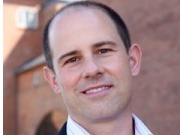McDonalds HFC-free journey
About this presentation
related to ATMOsphere America 2014
published on 19 June 2014
6 pages
1 MB
In this presentation, Jeffery Hogue, Senior Director of Global Sustainability for McDonald’s Corporation, discusses the company’s first 100% natural refrigerant restaurant in Denmark and the drivers behind the conversion from f-gasses. Energy efficiency, accounting for 20% of McDonald’s carbon footprint, is the main reason why the company has implemented a total of 700,000 units of natural refrigerant equipment (hydrocarbons and CO2) globally. Hogue also emphasises the need for the entire supply-chain to work together to drive market innovation and lower-cost solutions.
About the speaker(s)
Jeffrey Hogue

Jeffrey Hogue is a respected leader in Corporate Social Responsibility and sustainability in the international food and agriculture value chains over the past 18 years. At McDonald’s he works across a variety of sustainability and corporate social responsibility areas including the environment, community engagement, sustainability reporting, and integration of sustainability strategy into the business.
Prior to McDonald’s Jeffrey was based in Copenhagen, Denmark as Corporate Officer and Vice President of Sustainability & Corporate Social Responsibility for Danisco A/S, now part of DuPont. In his role, he led the successful integration of Danisco's Sustainability and CSR approach and other critical Danisco functions including Quality/Food Safety, Regulatory, Security, Environmental Health and Safety, Life Cycle Assessment, Ethics and Compliance within the new DuPont organization. In his transition from Danisco to McDonald’s, he served as a founding Expert in Residence for the Presidio Graduate School in San Francisco, California.
Jeffrey has been active in international standards development as a D-Liaison expert in the development of ISO26000 - Guidance on Social Responsibility, and is the served as the Liaison delegate for Danisco in The World Business Council for Sustainable Development. He has a Master’s of Science in Public Health and Community Medicine from the University of Washington a Certificate in Integrated Administration from the University of Washington’s Foster School of Business and an Executive Certificate in Sustainable Management from the Presidio Graduate School.

